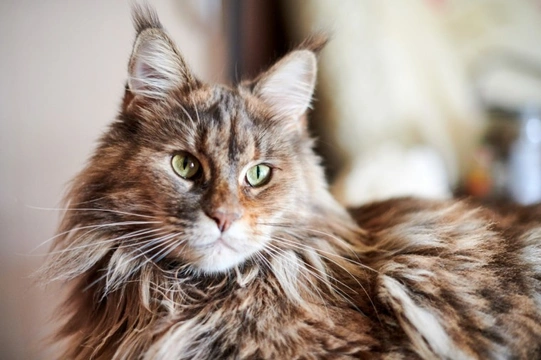
How to care for your young male cat if you can’t have them neutered?
Covid19 and social distancing restrictions in the UK are set to continue in some shape or form for many weeks or potentially, months to come, and many of us are finding that they’re affecting a wide and diverse range of day-to-day things that we usually take completely for granted.
Hopefully by now all pet owners know that vets and veterinary clinics are still permitted to operate to offer essential services for animal healthcare, with this being delivered where possible without face to face contact, using things like video consults and other creative workarounds.
However, only veterinary care that is required for an emergency or that is essential (to prevent pain, suffering or distress) can be offered at this time; which means that even preventative healthcare that is deemed as hugely important and a priority for pet owners in normal times is off the table at the moment.
If you own a male kitten or young male cat, you might already have had problems getting them their healths check, vaccinations, and other everyday essentials – but if you didn’t realise already, Covid19 social distancing regulations as they stand at present (6th April 2020) also mean that when your male cat reaches sexual maturity, you won’t be able to have them neutered.
When the social distancing regulations will be eased and vets will be able to expand their range of services once more are all things that nobody knows at present; which means that many people who got a kitten or young male cat in the last few weeks or months will be on a steep and unexpected learning curve dealing with them when they become sexually mature!
If you want to find out what to expect when your male kitten becomes sexually mature and ensure that you can prevent them fathering an unwanted litter before you can eventually get them neutered, read on for our tips and advice.
When do male cats become sexually mature?
Different cats become sexually mature at different ages, but generally a male cat becomes sexually mature by the age of around five or six months of age. This range can be fairly elastic, with some cats older and some younger; the Siamese breed in particular tends to come of age a little younger than most.
Whilst male cats should not be used in breeding programs until they are at least two, male cats are capable of reproducing and fathering a litter from just a few months of age.
What sort of behaviours can I expect from a young unneutered tom cat?
The behaviour of a tom cat can depend on the potential availability of mates, and proximity to unneutered females in heat. If there is a female in heat in the local area, you can expect your tom cat to become much more difficult to manage!
Tom cats do behave rather differently to neutered males anyway; they tend to scent mark more, roam further, stay out for longer, and be more prone to scrapping, hunting, and other potentially undesirable behaviours. They can also be very vocal.
Different personalities have an impact for individual cats too, of course; but if you’re unlucky, your unneutered male cat might be very vocal, yowling and making piercing sounds for protracted periods of time day and night, and they might spray or scent mark prolifically too.
Do I have to keep my cat in until he is neutered?
When a male cat reaches sexual maturity, he is not only capable of fathering kittens but driven by a hormonal urge to do so. This means that a tom cat is highly likely to go off in search of a queen in heat and make a huge fuss and be a pain for that cat’s owner, yowling, spraying, hanging around, and fighting with any other competition.
You also have to bear in mind that for the same period of time that you can’t get your own cat neutered, neither will the owners of female kittens be able to have their pets spayed; and so young fertile cats of both genders are apt to be more common in the interim, raising the risk of unwanted litters, and toms disappearing off after a mate and potentially becoming injured in fights with other males.
For all of these reasons, it is important to keep your cat in when they become sexually mature and begin showing signs of this. If you have yet to start letting your kitten out, it is far better not to at present and wait until they can eventually be neutered, as it is harder to keep a cat in that has been used to going out than to keep a cat in that doesn’t know what they are missing!
However, even so, you need to take care that your cat doesn’t escape or slip out by mistake, which they will be very motivated to do if there’s a female cat in heat in the area.
What do I do if I also have a female kitten?
If you have both a male and a female kitten and neither have been neutered, this can generate a really difficult situation, as not only will you need to keep both cats in, but also keep them separate from each other.
Two unneutered cats capable of mating will do so when the female is in heat – even if the two cats are siblings or otherwise related. This can be a huge challenge, but remember that even though you cannot get your cats neutered due to coronavirus social distancing restrictions at present, your vet can still offer advice; so don’t hesitate to call them if you have questions or concerns.



